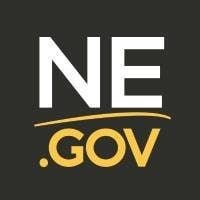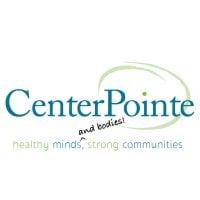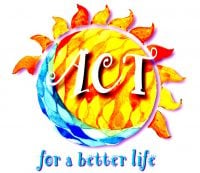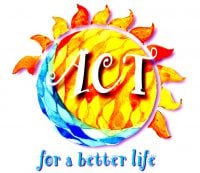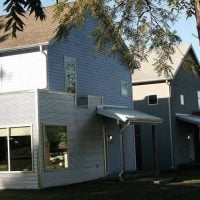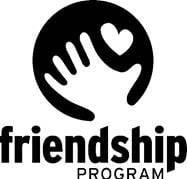Nebraska Dept of Correctional Services
Drug Rehab Center in Lincoln, Nebraska
The Nebraska Department of Correctional Services provides a range of services, including evidence-based programs for addiction and substance abuse, and has achieved various accreditations and awards for its commitment to treating these issues.
About Nebraska Dept of Correctional Services in Nebraska
The Nebraska Department of Correctional Services (NDCS) is a state criminal justice agency that provides community corrections, probation, and parole services, as well as direct care programs for inmates and staff in Nebraska. Located in Lincoln, Nebraska, this agency is committed to creating a safe, secure, and equitable justice system. NDCS provides a range of services designed to effectively address the needs of those under its supervision, including programs for those with addiction and substance abuse problems.
NDCS provides a variety of structured, evidence-based programs to help individuals with addiction and substance abuse issues. These programs include comprehensive assessments, individualized treatment plans, and cognitive-behavioral risk management strategies designed to help individuals address their addiction problems. In addition, NDCS provides a range of clinical and support services to assist individuals in making positive lifestyle changes and gaining the skills and resources necessary to succeed in recovery and beyond.
NDCS has achieved many accreditations and awards in recognition of its commitment to treating addiction and substance use issues. The agency is accredited by the American Correctional Association and the National Commission on Correctional Healthcare, and has received the President’s Award for Excellence in Mental Health Services. NDCS is also a member of the Council of State Governments Justice Center and the National Association of State Mental Health Program Directors. NDCS also supports research and evidence-based initiatives, helping to create a more effective and equitable criminal justice system.
Genders
Ages
Modality
Additional
Conditions and Issues Treated
Opioid addiction is a common form of addiction, often caused by prescription drugs that are abused. Addiction is treated by detoxifying the body and following up with therapies to correct behavior and target the root of the problem.
Most opioid addiction begins with patients being prescribed painkillers after an injury or surgery. The body becomes used to the chemicals in these medications and soon no longer responds to their presence. As a result, addicts seek out stronger opiate-based medications like Oxycodone to compensate for the lack of effectiveness.
The most dangerous aspect is that these addictive behaviors often get carried over onto illicit drugs like heroin, which are increasingly potent and result in lower life expectancies.
Levels of Care Offered
This center offers a variety of custom treatment tailored to individual recovery. Currently available are Aftercare Support, Drug Rehab, Outpatient, Residential, Sober-Living / Half-Way, with additional therapies available as listed below.
Outpatient treatment programs are less intensive than an inpatient program. Participants live at home while working or going to school. Benefits include being able to continue relationships with family, friends, and work/studies. Treatment includes educating patient on addiction to drugs, medication, and counseling. Benefits include being able to continue relationships with family, friends, and work/studies. Treatment includes educating patient on addiction to drugs, medication, and counseling. Counseling sessions are for either individual or group.
People who have completed treatment have the opportunity to go to a sober living home. These facilities located in Nebraska, offered by Nebraska Dept of Correctional Services, support a sober living lifestyle. There are often curfews, chores, and therapy sessions enforced to keep residents clean. Career training and other resources are also provided to help recovering addicts return to the outside world. Sober living houses help the patient to smoothly transition from a formal treatment program to a normal life.
SLH (Sober Living Homes) is one of the options of aftercare that helps the patient maintain sobriety by preventing relapses. SLH provides the advantage of residing with a peer group who had similar experiences and share the common goal of staying sober. All the residents need to follow a set of rules or guidelines. These are different for different SLH. They help the patient gradually restore the life skills, interpersonal skills, and various other skills needed to be independent.
Residential treatment programs are those that offer housing and meals in addition to substance abuse treatment. Rehab facilities that offer residential treatment allow patients to focus solely on recovery, in an environment totally separate from their lives. Some rehab centers specialize in short-term residential treatment (a few days to a week or two), while others solely provide treatment on a long-term basis (several weeks to months). Some offer both, and tailor treatment to the patient’s individual requirements.
Aftercare Support in drug rehab is crucial because it helps people stay sober after treatment. The benefits of Aftercare Support are that it provides a pathway that will help people get sober for life. It supports healing at all levels, physical, mental, emotional, and spiritual.
Therapies & Programs
Individualized Treatment is essential because it gives addicts the ability to participate in a program that meets their unique needs. An addict should work with professionals who understand what they’re going through, especially if the addict is actively using.
Trying to find a treatment program that meets your needs can be challenging. It’s even more complicated if you don’t know what kind of treatment you need. Being able to have professionals who are experienced with treating your situation is key to getting sober. Finding the right treatment program for an addict is difficult, but it’s even harder without communicating with those who have experience treating your specific situation.
Family dysfunction can often be the underlying cause of substance abuse. To get sober, you need to find a different way to cope with the pain in your life. Family therapy can help you and your family deal with old issues that may trigger substance abuse. It will help everyone understand why each member of the family feels and acts the way they do. It can give everyone new tools to manage their emotions so that they don’t want to drink or do drugs.
Dialectical behavior therapy is a type of cognitive-behavioral therapy that focuses on eliminating specific negative thoughts that can potentially lead to an individual inflicting self-harm. It helps treat patients exhibiting uncontrollable emotions, intense mood swings, and borderline personality disorders.
The term “dialectic” means the integration of opposites. In the substance abuse context, dialectical behavior therapy refers to accepting the patient’s addiction and changing their thoughts and behavior. It improves life skills such as controlling intense emotions without reacting impulsively, resolving interpersonal conflicts effectively, and promoting awareness about self and others.
Cognitive behavioral therapy (CBT) is a type of psychotherapeutic treatment that is focused on changing negative ways of thinking that contribute to addictive behavior.
Cognitive behavioral therapy is beneficial for:
- People who are seeking to overcome addictive behavior
- Those who struggle with addictive behavior and mental illness
- People who have a genetic history of addiction in their family
- Those who don’t want to depend on medications
- Those who need a more practical treatment approach
Life skills training is beneficial for addicts in recovery because it helps them learn how to take care of themselves and improve their quality of life, which can promote feelings of purpose and motivation.
This type of treatment works by teaching individuals life-enhancing skills that support positive living, including:
- Healthy lifestyle habits
- Skills to effectively manage stress
- Effective communication skills to help them get their needs met without turning to drugs or alcohol
- Money management and budgeting skills so they can continue to take care of themselves after treatment ends.
Patient Experience
Experiential Therapy at Nebraska Dept of Correctional Services
Experiential therapy is a type of therapy that has been found to be effective in the treatment of substance abuse. It is a “hands-on” approach, which can involve anything from acting to rock climbing. The individual must trust the therapist for this therapy to work. This therapy helps individuals revisit and heal from past traumas and has been used in various behavioral and eating disorders.
Payment Options Accepted
For specific insurance or payment methods please contact us.
State of Nebraska Associated Centers
Discover treatment facilities under the same provider.
Learn More About State of Nebraska Centers
Additional Details
Specifics, location, and helpful extra information.
Lincoln, Nebraska 68509 Phone Number(402) 471-2654 Meta DetailsUpdated November 25, 2023
Staff Verified
Nebraska Dept of Correctional Services Patient Reviews
There are no reviews yet. Be the first one to write one.
Lincoln, Nebraska Addiction Information
Despite a total population of slightly less than 2 million residents, methamphetamines are one of the most commonly abused illicit substances in the state. Alcohol abuse is so common that a news article once referred to Nebraska as "America's 9th drunkest state". Although opioid abuse rates in Nebraska are not as high as those in other states, opioids are still involved in most overdoses.
The drug addiction problem in Lincoln, Nebraska is one of the worst in the country. Stimulants, particularly methamphetamine, are the most prevalent drug substances, while marijuana accounted for 27%. Some people may start using drugs to cope with their problems or search for fleeting happiness. Many drug rehab facilities in Lincoln will provide counseling services in addition to medication management, and other necessary treatments.
Treatment in Nearby Cities
- Norfolk, NE (92.0 mi.)
- Auburn, NE (54.1 mi.)
- York, NE (46.7 mi.)
- Pawnee City, NE (56.3 mi.)
- Blair, NE (58.6 mi.)
Centers near Nebraska Dept of Correctional Services
The facility name, logo and brand are the property and registered trademarks of Nebraska Dept of Correctional Services, and are being used for identification and informational purposes only. Use of these names, logos and brands shall not imply endorsement. RehabNow.org is not affiliated with or sponsored by Nebraska Dept of Correctional Services.
